Disclosure: We may get commissions for purchases made through links in this post.
Do you think you can use gator patches on asphalt? Or are you wondering what a gator patch actually is? Very well, if you don't have the idea, let us do the explaining to you since we have already thoroughly researched the internet for this one.
Yes, you can use a gator patch on asphalt. It is an excellent all-around repair patch for cracked asphalt. And below are the three simple steps to guide you on how to use the gator patch on asphalt:
- Clean the asphalt.
- Prepare the gator patch mixture.
- Apply it evenly on the cracked asphalt surface.
There are still many things about the gator patch we think you should know that might help you next time. So, we suggest you sit, relax, and keep reading as we dig deeper for more information.
![A black asphalt floor with crack, Can You Use Gator Patch On Asphalt? [And How To]](https://pavingplatform.com/wp-content/uploads/2022/03/Can-You-Use-Gator-Patch-On-Asphalt-And-How-To-1-800x1200.png)
How To Use Gator Patch On Asphalt?
Using a gator patch is so easy and undemanding. You won't need any heavy equipment to use it. All you need to prepare is a broom with stiff bristles, a leaf blower, and a squeegee for its application. In addition, you can have your asphalt ready within two to four hours.
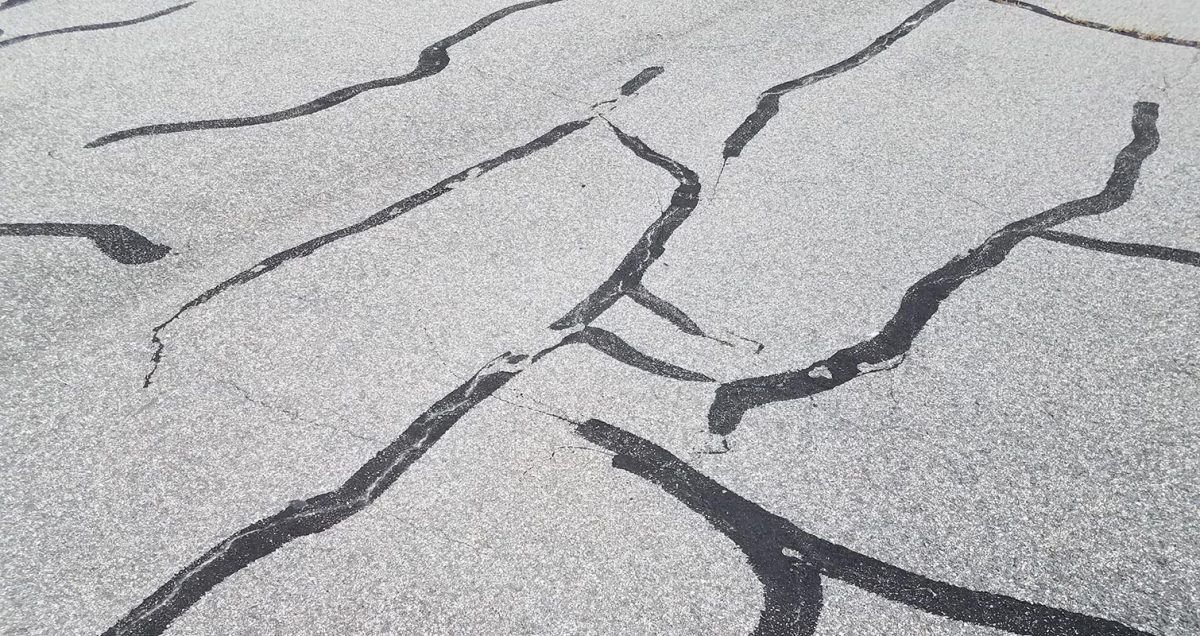
1. Clean The Asphalt
Before applying the gator patch, the first thing to do is clean the asphalt's surface from dirt and debris. You can use a stiff-bristled broom to sweep away anything on the surface. Sweeping will ensure that no loose stones or debris get caught up with the product in the installation process.
After sweeping, you can also use a leaf blower to remove any remaining dust, leaves, or debris on the surface.
Pro Tip: We recommend not to use a pressure washer in cleaning if you want to finish the process within the day. If you opt to use a pressure washer, you should wait at least 24 hours for the asphalt to completely dry.
2. Prepare The Gator Patch Mixture
After cleaning the asphalt pavement, you must prepare a gator patch mixture. Read and follow the manufacturer's instructions about the mixing and stirring of the gator patch.
Check this gator patch on Amazon.
After creating the mixture, pour some of it into the surface with alligator cracks and spread it properly using a squeegee.
3. Apply it evenly on the cracked asphalt surface

For those cracks with a size more expansive than a half-inch, make sure you spread the gator patch evenly on the surface by removing the excess with the squeegee.
Remember that you should not spread the gator patch too thick in a single coat. You must spread it in numerous layers. Otherwise, it will not cure and dry itself out on time.
Check this asphalt squeegee on Amazon.
Reminder: A gator patch is sensitive to temperature. We do not advise using this if the temperature is below 50 degrees Fahrenheit or when there is a chance of rain.
Product Care
After Use Clean-up
Wash the squeegee and whatever tools you have used with the installation with water and soap. If the gator patch has become dry on the materials, we recommend using a solvent to remove it.
Storing Gator Patch
You must ensure that the product is always close when not in use. Do not store it in direct sunlight. Also, it would be best if you won't store it in temperatures over a hundred degrees Fahrenheit. Lastly, always keep it out of reach from children.
Does Gator Patch Seal Asphalt?
Once the gator patch finishes curing itself, it automatically seals the asphalt cracks against moisture, water, and chemicals. Even the low-lying spots and dips where water accumulates are not an exemption. It also can withstand any climate once it finishes curing.
However, if you want to improve the durability of the asphalt paver, you can still seal the surface 48 hours after you install the gator patch. You can use regular asphalt sealants or a coal tar asphalt sealer.
Check this asphalt crack sealant on Amazon.
What Causes Alligator Or Asphalt Cracks?
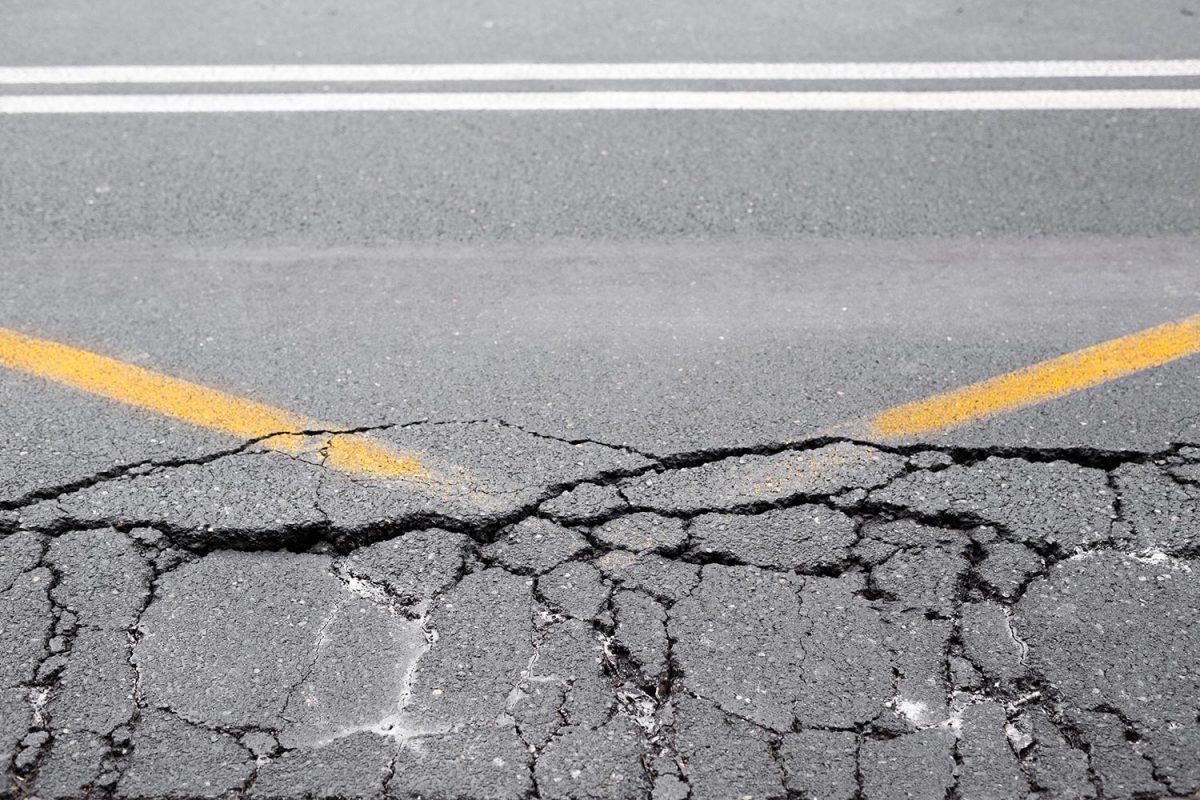
Having alligator cracks on your asphalt signifies that its foundation is at risk. Without further wasting time, take action immediately to prevent further damage and avoid having potholes. The reasons why alligator cracks exist on your asphalt surface are primarily because of:
Foundation Installation Failure
According to the experts, the primary reason for alligator cracks is the feebleness of the base course. In some instances, the base of the asphalt pavers is not correctly installed, which makes them weak. And if it is indeed weak, it will surrender under the weather changes and pressure of the heavy loads.
Ignoring Small Cracks And Damage
Treat it immediately once you notice that cracks appear in your asphalt. Don't let it stay there for too long as it expands as time passes, and it will be harder to fix the surface.
Ignoring Maintenance
We all know that asphalt can last for approximately 20 to 30 years. And if you care enough for your asphalt surface to maintain it, it will surely increase its longevity. Maintenance includes preventing the accumulation of snow or ice.
If you don't maintain your asphalt as required, it will likely develop stubborn cracks and damage.
Driving On Uncured Asphalt
An asphalt surface usually dries for about two to three days. Curing is entirely a different matter. Experts say that asphalt curing time will take six to twelve months maximum.
The distinction between drying and curing will be surface firmness. Indeed, you can drive on the surface when it is already dry. However, when the curing process of the asphalt is still not enough to be entirely firm, it cannot bear and withstand heavy loads.
And here is a little suggestion, it would be best if you try avoiding parking your vehicle in the exact spot of your asphalt pavers every day.
Read this: "How Long Does Asphalt Take To Cure or Dry?"
Cold Weather Conditions
You probably do not know it yet, but cold is the number one enemy of an asphalt surface since it creates more damage than usual. Asphalt tends to crack easily when ice, water, and snow seep through it.
You may also read this article: "Can Asphalt Be Put Down In The Rain?"
Why Do You Need To Fix Alligator Cracks Immediately
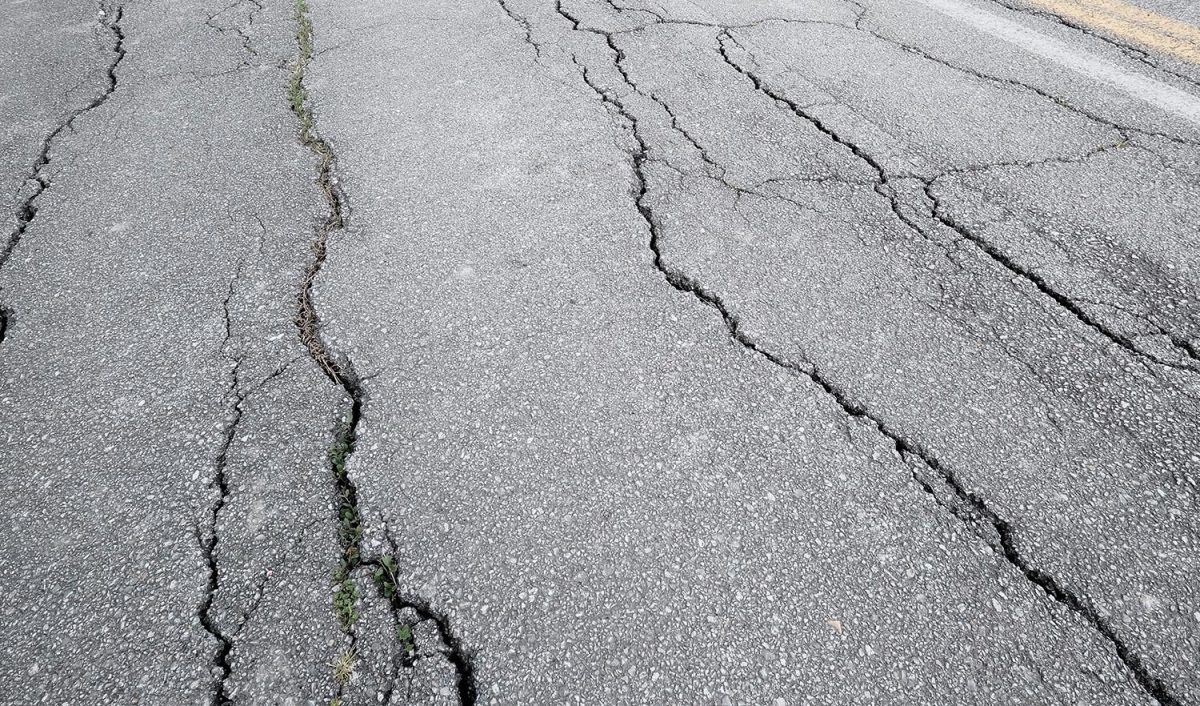
Why is it essential to fix it immediately? Alligator cracks can lead to more complicated and more laborious potholes to fix. In winter, the freeze-thaw water process can expand alligator crack openings. Also, it makes your pavement more fragile which may lead to potholes.
Something we will advise you is to take good care of your surface. We know you wouldn't want your money to waste by letting your asset break apart. Taking care of it will save you funds in the long run.
Potential Damage to Cars
Ignoring the alligator cracks and not considering fixing them will put the cars and those driving them at risk. The asphalt holes can be a possible cause of accidents and loss of property.
It Can Put People At Risk
Alligator cracks on asphalt can indeed cause accidents, not only to cars but also to pedestrians. People may trip over its holes or cracks, and they can get injuries.
You can also read: "How To Fix Alligator Cracks In Asphalt Driveway."
How To Know If It's Too Late To Use Gator Patch
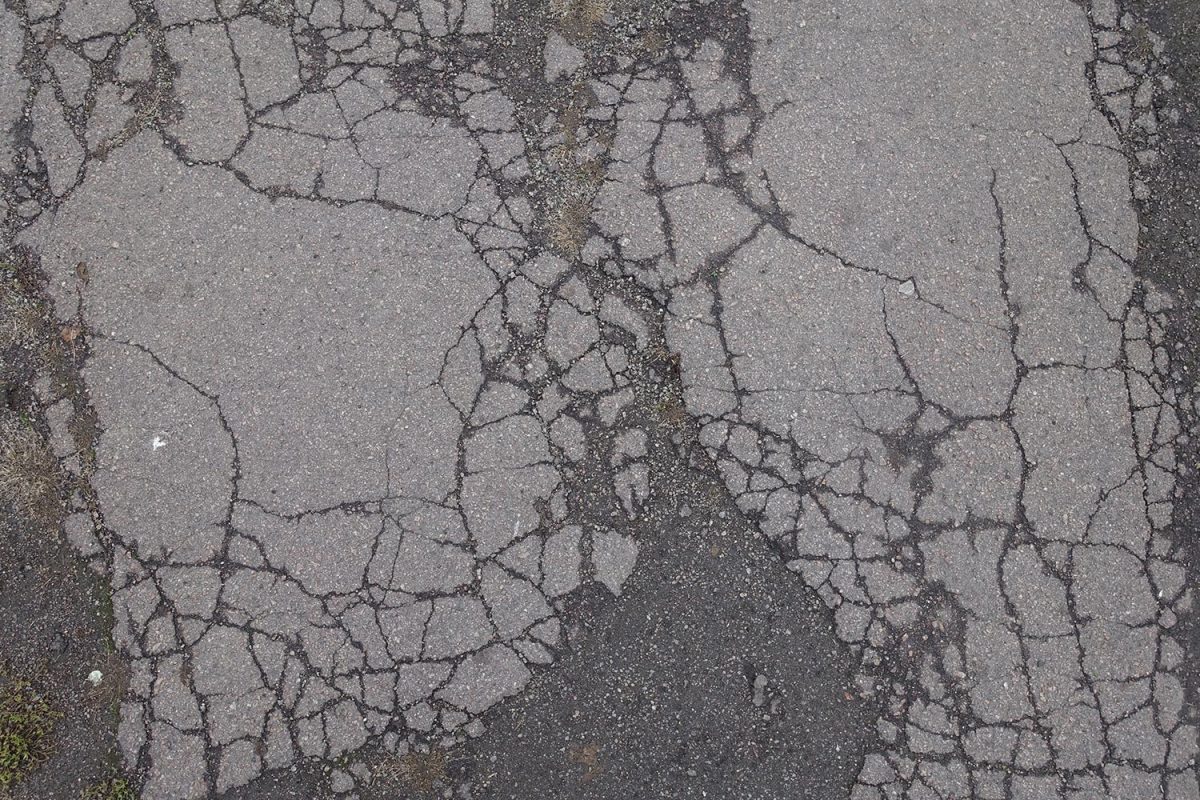
If you fail to notice that the alligator or asphalt cracks get too far, and you can peek right down to the gravel that forms up the base of your asphalt, understand that the gator patch can't help solve this issue anymore. However, you can still fix a pothole if it isn't too deep. And the best material to repair that pothole is to use a cold mix asphalt containing a polymer bond.
Professional contractors use hot asphalt mix, while you can do professional patching with cold asphalt mix. Don't worry, it is easy to use, and you can even apply it in any weather situation.
The material will quickly cure if it is exposed to air. In addition, the cold asphalt patches should be approximately two inches thick. And in case you are patching a bit deeper pothole, fill it first with angular crushed gravel and then patch it with the cold asphalt mix.
In Conclusion
A gator patch is an excellent product. Using it to fix the alligator cracks on your asphalt pavers without the use of heavy equipment is genuinely remarkable. Another impressive thing about it is that it will only need two to four hours of installation. And you don't even have to hire a paving professional because you can do it yourself! Who wouldn't want this product, right? A gator patch is indeed a heaven-sent for our asphalt pavers!




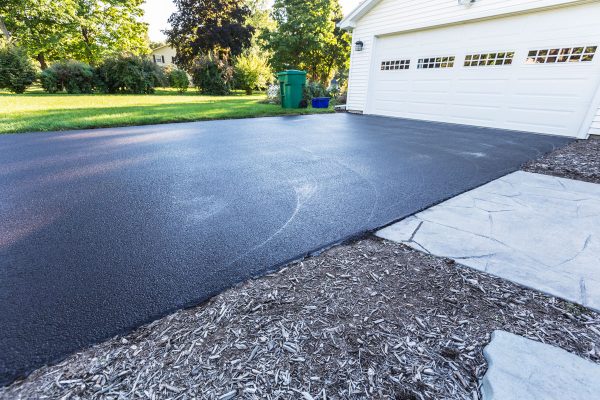
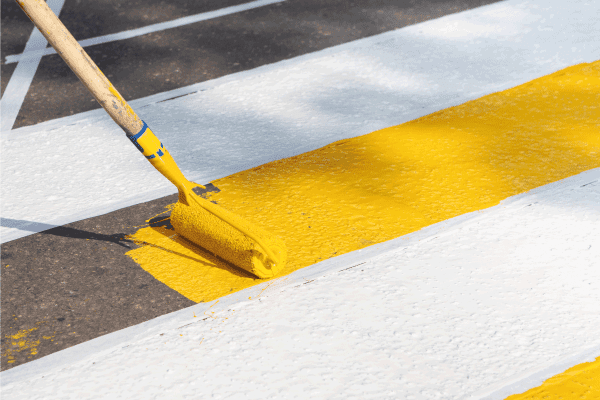
![Two manual workers helping to level the asphalt surface for a steamroller to press, Types Of Asphalt [And How To Choose For Your Driveway Or Walkway]](https://pavingplatform.com/wp-content/uploads/2022/03/Two-manual-workers-helping-to-level-the-asphalt-surface-for-a-steamroller-to-press-600x400.jpg)